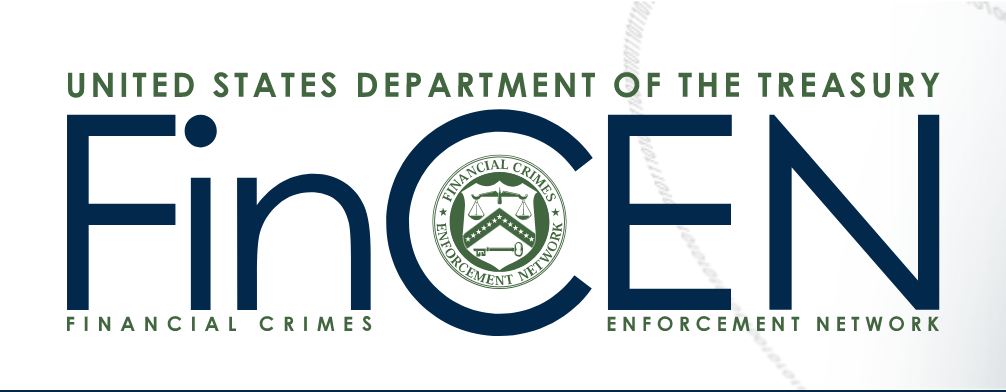FinCEN’s Corporate Transparency Act Has Arrived
NEW YORK- Enacted by Congress in 2021, the Corporate Transparency Act (CTA) went into effect on January 1, 2024 and affects more than 30 million American small businesses1 and many smaller foreign companies doing business in the United States. Unless exempted, these businesses must provide ownership information to the Treasury’s Financial Crimes Enforcement Network (FinCEN) on a timely and ongoing basis or incur civil or criminal penalties, including civil penalties of up to $500 per day up to $10,000. For entities formed in 2024, they will have 90 days from the date of formation to file their Beneficial Owner Information (BOI) reports; entities formed before 2024 will have until January 1, 2025 to file.
What’s The CTA’s Goal?
The Treasury explains that the CTA was created to help “prevent corrupt and other actors from laundering illicit funds through anonymous companies in the United States” and “will equip law enforcement and other partners with the information they need to disrupt financial anonymity that enables crimes such as corruption, drug trafficking, and terrorism.”
Who Must File?
In its Compliance Guide, FinCEN defines a Reporting Company as a small corporation or LLC that was created by filing a document with a secretary of state, or a foreign company which has registered to do business in any U.S. state by filing a document with a secretary of state.
FinCEN describes “small” as an entity that:
- Employs 20 or fewer full-time employees in the United States
- Filed a federal income tax return for the prior year showing $5,000,000 or less in gross receipts or sales within the United States

What Information Must Companies Provide And How?
Companies must provide four pieces of information on each Beneficial Owner:
- Name
- Date of Birth
- Address
- ID# and Image from a non-expired U.S. driver’s license or passport. If none of these documents exist, a non-expired foreign passport may be used.
Each reporting company must also submit its name and address and TIN. Additionally, reporting companies created on or after January 1, 2024, are required to submit information about the individuals who formed the company (“Company Applicants”).
The BOI report should be filed using the FinCEN website and can be submitted in pdf format using a downloadable form provided by FinCEN or by interacting with FinCEN’s computer system.

What is a Beneficial Owner? Company Applicant?
FinCEN defines a Beneficial Owner as any individual that “exercises substantial control over a reporting company” or who “owns or controls at least 25% of the ownership interests of a reporting company.” A company may have multiple beneficial owners through substantial control, ownership interests, or a combination of both.
Someone with Substantial Control would be a senior officer (president, CEO, COO, CFO, General Counsel), or someone who has the power to appoint or remove such an officer, or someone who is an important decision maker and impacts the entity’s business decisions, finances, or structure.2
Beneficial Owners who are minor children do not need to be listed. However, their parent or legal guardian must be listed instead.

Entities created on or after January 1, 2024 must also report their company’s applicants, and those applicants must be individuals. The applicant is “the individual who directly filed the document that created a domestic reporting company or the individual who directly filed the document that first registered a foreign reporting company … This individual would have actually physically or electronically filed the document.”
At least one applicant, and at most two, must be reported. The other possible applicant is the one “who was primarily responsible for directing or controlling the filing of the creation or registration document.”3
23 Exemptions
FinCEN’s Compliance Guide lists twenty-three exemptions to this filing requirement, the most common of which are that the company is a:
- Large company (> 20 employees and >$5,000,000 U.S. gross receipts)
- Publicly traded entity registered with the SEC
- Bank, Credit Union, Insurance Company, or Investment Company registered with the SEC
- Inactive Entity
- Accounting firm4
This Information Must Be Kept Current
If there are any changes to the originally filed information, the company must file an updated report no later than 30 days after the date on which the change occurred. This rigorous deadline covers all changes in control and ownership of the company and even applies to any changes to a beneficial owner’s name or address. Should such a beneficial owner obtain a new driver’s license or passport with the updated information, an image of that document would need to be uploaded as well.
Inaccuracies must also be reported within 30 days of an entity becoming aware of the issue (or having had reason to know of it). There are no penalties for filing an inaccurate BOI report provided it is corrected within 90 calendar days of when it was filed.
FinCEN notes there is no requirement to report a company’s termination or dissolution.
Steep Penalties For Non-Compliance
FinCEN lists significant possible civil and criminal penalties for “the willful failure to report complete or updated beneficial ownership information to FinCEN, or the willful provision of or attempt to provide false or fraudulent beneficial ownership information.”
These “may result in a civil or criminal penalties, including civil penalties of up to $500 for each day that the violation continues, or criminal penalties including imprisonment for up to two years and/or a fine of up to $10,000. Senior officers of an entity that fails to file a required BOI report may be held accountable for that failure.”

Security of Data
FinCEN assures the public in its Compliance Guide that “the database will use rigorous information security methods and controls typically used in the Federal government to protect non-classified yet sensitive information systems at the highest security level.”
The Double-Edged Sword of the FinCEN ID
FinCEN offers to provide individuals with a FinCEN ID#, similar to a social security number, which would allow them to update their personal information in only one location. This would save time for the beneficial owners of multiple companies. Each BOI report would contain the owner’s FinCEN ID# only, so the changed personal information would not need to be updated separately for each company.
However, some financial advisors have noted that once a FinCEN ID is created, its owner must continue to update the information no matter if you currently have a BOI reportable business or not. In essence, having a FinCEN ID could tie you to FinCEN “for life”.5
Current Legal Action Against the CTA

The 65,000 member National Small Business Association (NSBA) has filed a lawsuit against Secretary of the Treasury Janet Yellen, the U.S. Treasury, and the Acting Director of FinCEN challenging the constitutionality of the CTA for violating their plaintiff’s First, Fourth, and Fifth Amendment rights while also being beyond the scope of Congress’s powers. Preliminary arguments began November 27, 2023, and it is likely there is a long and possibly fruitless battle ahead.
Professional Filing and Upkeep of the BOI Report
With the importance of timely and accurate filings for each entity’s BOI report, many company owners are looking to their professional advisors to stay on top of these obligations. Almost all state certificates of information are already being handled by the CPA firms that service these entities, and with the severity of the penalties for non-compliance, many owners and corporate leaders see the wisdom in handing off these compliance tasks to their accountants. AB FinWright stands ready to assist its clients with their CTA compliance needs. If you would like, we’d be happy to set your Beneficial Owner Information report solution in motion.
Editors: thanks to 420CPa.com for this content. For all your tax strategies contact [email protected]


































